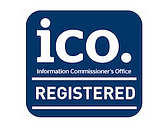Solar PV Panels
Solar Panels
Solar panels are a key player in the global shift toward renewable energy. With rising electricity costs and growing environmental concerns, more homeowners are considering solar photovoltaic (PV) systems to cut bills and reduce carbon footprints.
This guide covers everything you need to know about solar panels—how they work, costs, savings, government incentives, and whether they’re right for your home.
How Do Solar Panels Work?
Solar panels convert sunlight into electricity using photovoltaic (PV) cells. When sunlight hits these cells, it generates direct current (DC) electricity, which an inverter converts into alternating current (AC) for home use. Excess energy can be stored in batteries or fed back into the grid for financial returns.
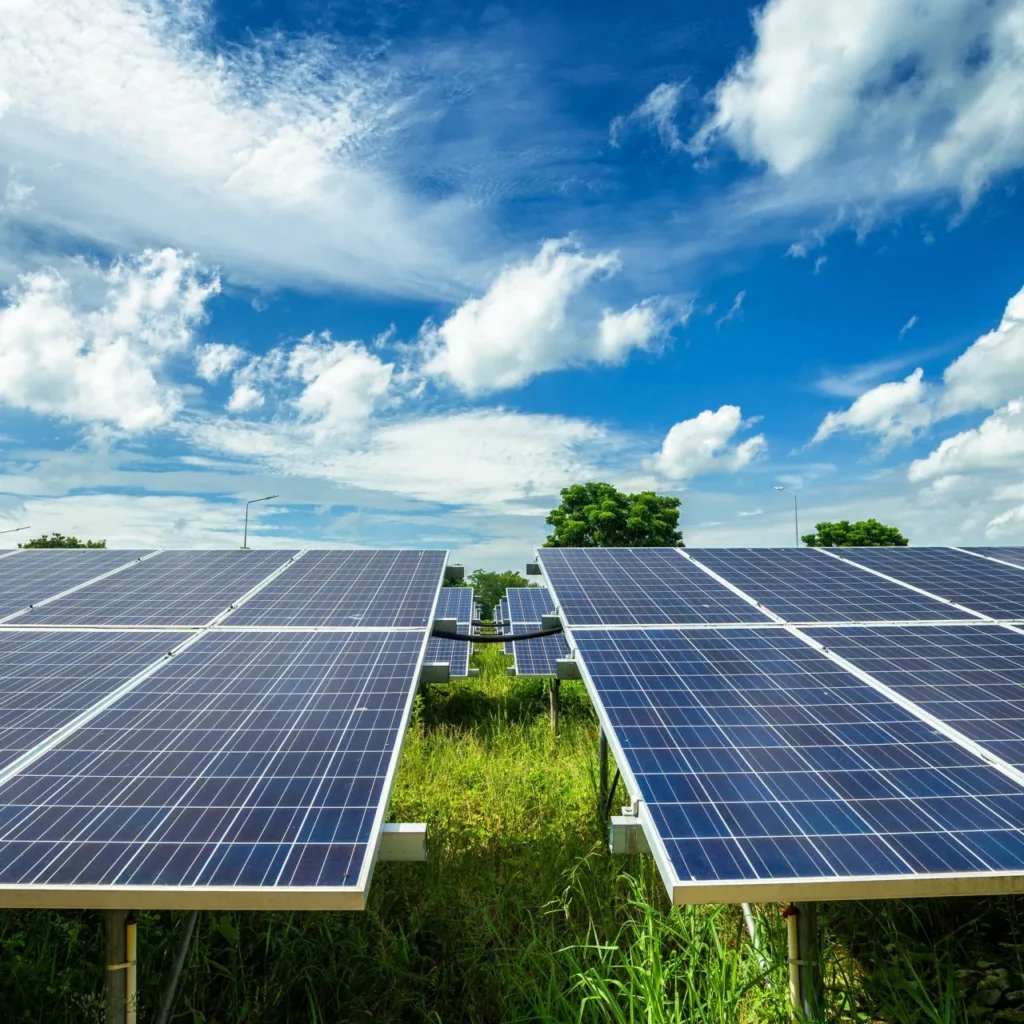

Types of Solar Panels
- Monocrystalline – High efficiency, sleek design, but more expensive.
- Polycrystalline – Mid-range efficiency, affordable, slightly less space-efficient.
- Thin-Film – Flexible and lightweight, but lower efficiency.
Installing a solar diverter
A solar diverter helps make better use of your solar energy by sending excess electricity to your immersion heater instead of back to the grid. This allows your hot water tank to store heated water for later use. While it may not cover all your hot water needs, it can still reduce your energy bills.
Installing a solar diverter switch typically adds around £800 to your overall solar setup costs. Like most solar tech, it has a lifespan of about 12 years, so you’ll need to plan for its eventual replacement.
If you’re considering a diverter, speak to your installer. They may also recommend increasing the number of solar panels on your roof to generate more power for water heating.

What are the benefits of solar panels?

Cut your electricity bills
Sunlight is free, so once you’ve paid for the initial installation, your electricity costs will be reduced.

Cut your carbon dioxide emissions
Solar electricity is a clean, renewable energy source. A typical home solar panel system could save around one tonne of carbon per year, depending on where you live in the UK. That’s the equivalent of driving 3,600 miles, or from London to Bristol 30 times.


Sell extra energy to the grid
Export the electricity you can’t use yourself and get paid for it. The Smart Export Guarantee lets you sell extra electricity to the grid. This only applies to England, Scotland and Wales. If you live in Northern Ireland, speak to your energy supplier to see if they offer an export tariff.

Low Maintenance Costs
Solar panels are durable and require minimal maintenance, making them a cost-effective long-term investment.
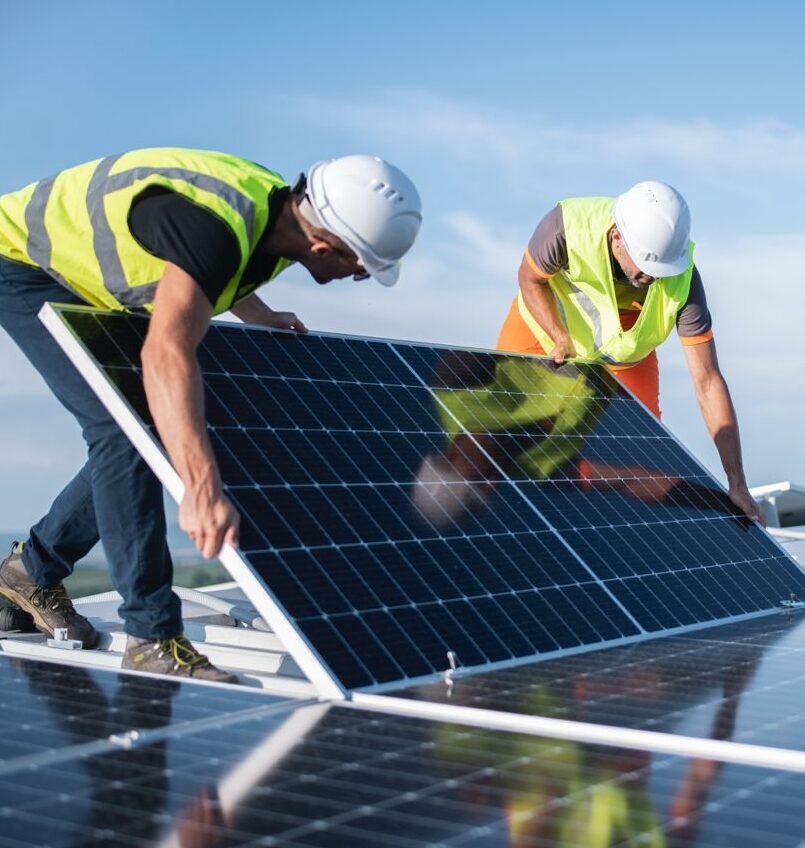
Types of Solar PanelsaHow much do solar panels cost to install?
Most home solar panel systems in the UK are around 3.5 kWp and cost roughly £7,000 to install. Final costs vary depending on:
- The size of your system
- How accessible your roof is
- Whether you choose panels or tiles
- Whether the panels are integrated into your home
- Whether your roof needs refurbishment
You may be able to lower installation costs if you already have scaffolding in place for roof work or are installing panels as part of a new build.
For ground-mounted systems, costs are harder to estimate due to factors like:
- The type of mounting frame used
- Distance from your home
Can I get a solar panel grant?
There are currently no dedicated solar panel grants from the UK Government. However, you might be eligible for help through other schemes. Contact your energy supplier to check if they offer financial support for solar energy.
For England and Wales
Check with your local council or energy supplier for funding options under the Energy Company Obligation (ECO) scheme.
For Scotland
Visit the appropriate resources for advice on renewable energy funding for Scottish residents.
For Northern Ireland
Contact NI Energy Advice to explore available support and grants.
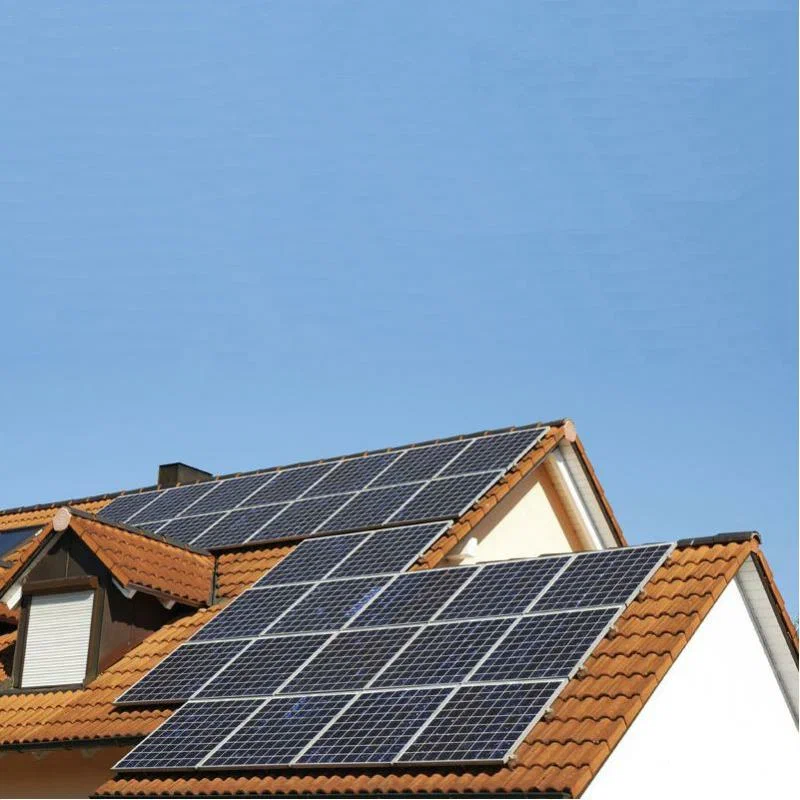
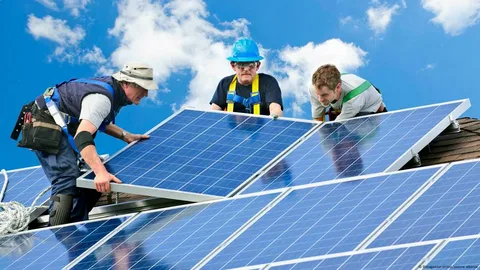
How much will I save with a solar panel system?
Your savings depend on several factors:
- How much of your solar electricity you use yourself
- Whether you sign up for Smart Export Guarantee payments
- Your location in the UK (southern areas typically receive more sunlight)
Using more of your own solar power and joining export payment schemes can lead to significant long-term savings on your energy bills.
How long do solar panels last?
Solar panels typically last 25 years or more. However, if your system includes a solar inverter, expect to replace it after around 12 years. Many inverters offer online monitoring and can notify you via email if there’s a system issue.
Inverters usually come with a minimum five-year warranty, often extendable up to 15 years. Ask your installer about inverter lifespan and whether an extended warranty is worth it.
In some cases, a 15-year warranty may cost nearly as much as a new inverter, so weigh your options carefully before committing.
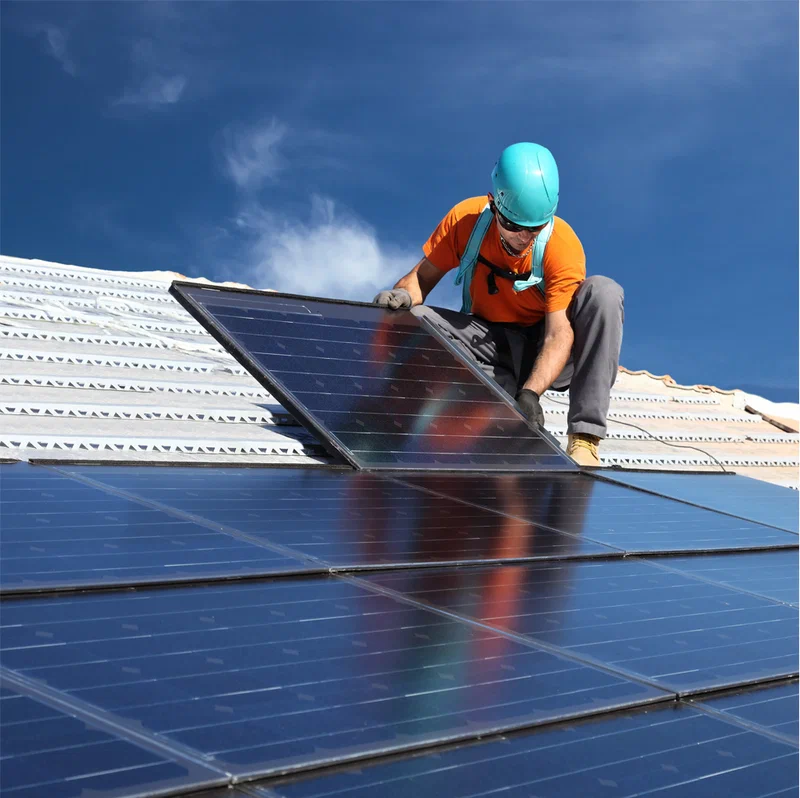

How do I maintain a solar panel system?
Solar panel systems require very little maintenance. The key task is to trim nearby trees to minimise shading and maintain optimal sunlight exposure.
In most of the UK, rainfall cleans panels naturally if they’re tilted at 15 degrees or more. If you have ground-mounted panels or live in a dustier area, occasional cleaning may be necessary to remove debris.
Your installer should provide written guidance on routine checks and how to recognise inverter fault signals. This information should help you troubleshoot issues and keep the system running efficiently.
It’s best to discuss the maintenance requirements with your installer before making a final decision on installation.
For more details, see our guide on solar panel cleaning and maintenance.
How do I get solar panels?
Start by using our solar panel calculator to determine the right system size for your needs. Then, get at least three quotes from MCS-certified installers this ensures quality and compliance with industry standards. You may also want to request quotes that include a solar battery.
Once you agree on a quote, schedule the installation. The process typically involves:
- Erecting scaffolding
- Installing the panel mounts and solar panels
- Connecting the inverter and optional battery to your home system
After installation, your installer will test the system and walk you through how everything works so you can start using your own clean energy.
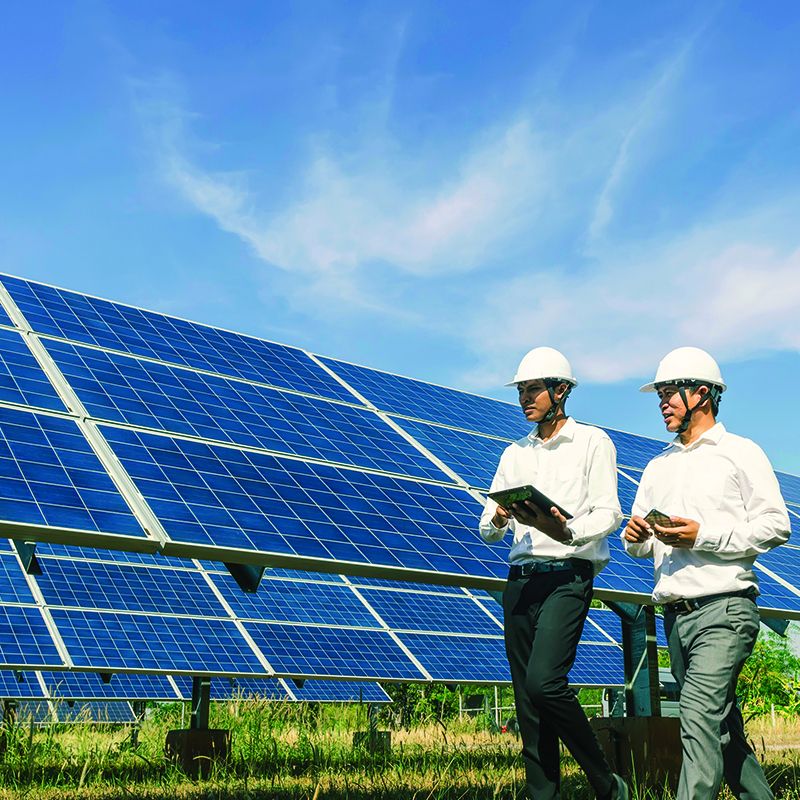
Faqs
Do solar panels work on cloudy days in the UK?
Yes! Modern solar panels don’t need direct sunlight – they generate electricity from daylight. While output is lower on overcast days, UK panels still produce 10-25% of their maximum capacity in cloudy weather.
How much can I save with solar PV diverters?
A well-sized diverter can save £50-£150 annually by using excess solar energy to heat water instead of exporting it. Homes with electric immersion heaters see the biggest savings, potentially cutting water heating costs by 30-50% in summer months.
What's the payback period for solar panels in the UK?
Currently 8-12 years for a 4kW system, depending on:
• Your energy usage patterns
• Whether you add a diverter/battery
• SEG export rates (typically 12-24p/kWh)
• Future energy price increases
Can I install solar panels if my roof isn't south-facing?
Yes, though south-facing roofs are ideal. East/west-facing systems produce about 15-20% less energy but can still be worthwhile, especially with higher electricity prices. North facing roofs are generally not recommended.
Do I need planning permission for solar panels?
In most cases, no solar panels fall under permitted development in England, Scotland and Wales. Exceptions apply for listed buildings/conservation areas. Always check with your local council before installation.
Our Network of Assessor and Installers
Our assessors and Installers are PAS2030 certified, our in house domestic energy advisors are Green Deal Certified and STROMA Certified.



